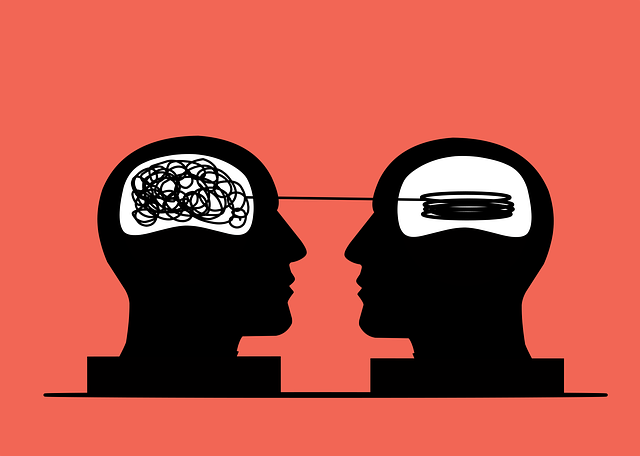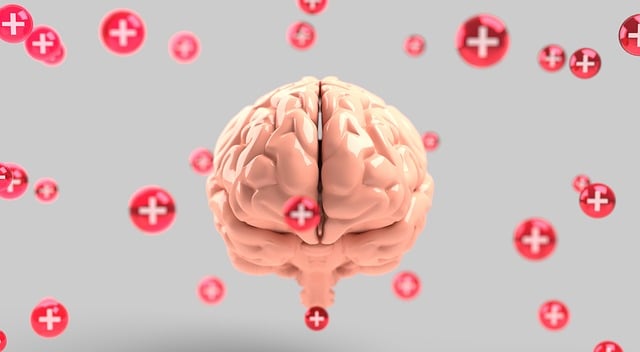Englewood International Adoptions Therapy provides specialized social skills training for individuals with mental health conditions, focusing on improving emotional regulation and promoting positive relationships. Their holistic approach integrates Emotional Regulation Techniques, Self-Awareness Exercises, risk assessment, and workshops to enhance well-being, stress management, communication, and self-confidence. Through role-playing, cognitive reframing, and empathy-building exercises, clients gain practical tools for navigating social environments while fostering meaningful connections, all within a culturally sensitive and supportive setting.
Social skills training is a powerful tool for individuals with mental health conditions, offering a pathway to improved well-being and enhanced relationships. This article explores the intricate link between social interactions and mental health, highlighting the significance of programs like Englewood International Adoptions Therapy. We delve into effective strategies for therapeutic settings, providing insights on how such programs can revolutionize support for those navigating mental health challenges. Discover practical approaches to fostering social skills, ultimately promoting recovery and self-confidence.
- Understanding the Connection Between Social Skills and Mental Health
- The Role of Englewood International Adoptions Therapy in Social Skills Training
- Strategies for Effective Social Skills Development in a Therapeutic Setting
Understanding the Connection Between Social Skills and Mental Health

Social skills training plays a pivotal role in mental health conditions, often overlooked yet profoundly impactful. At Englewood International Adoptions Therapy, we recognize that effective communication and social interaction are integral to overall well-being. Mental health struggles can significantly impair an individual’s ability to navigate social environments, leading to feelings of isolation and further exacerbating existing symptoms. By integrating Emotional Regulation and Emotional Well-being Promotion Techniques into our therapeutic approach, we help clients develop essential social skills.
Through Self-Awareness Exercises, individuals gain insights into their emotional triggers and learn healthy coping mechanisms for managing stress and anxiety in social settings. This holistic training empowers them to build meaningful connections, foster positive relationships, and ultimately enhance their overall mental health and quality of life.
The Role of Englewood International Adoptions Therapy in Social Skills Training

Englewood International Adoptions Therapy plays a pivotal role in providing specialized social skills training tailored to individuals with mental health conditions. This therapy goes beyond traditional approaches by offering a comprehensive, culturally sensitive program that addresses the unique challenges faced by those in the adoption and foster care system. Through innovative methods, they facilitate emotional healing processes, enabling clients to develop essential coping strategies and enhance their overall well-being.
The therapy’s approach involves risk assessment for mental health professionals, ensuring a safe and supportive environment where individuals can learn and grow. They organize stress management workshops that empower participants with practical tools to navigate social interactions successfully. By integrating these techniques into daily life, clients build confidence, improve communication, and foster meaningful connections—all crucial aspects of recovery and personal growth.
Strategies for Effective Social Skills Development in a Therapeutic Setting

Englewood International Adoptions Therapy offers a unique approach to social skills development, tailored to individuals with mental health conditions. The process begins with mental wellness journaling exercises that encourage self-reflection and emotional awareness. By documenting thoughts and feelings, clients gain insights into their triggers and coping mechanisms, fostering a deeper understanding of themselves and others. This introspective practice is a cornerstone for building empathy, both within oneself and towards peers.
Additionally, therapists employ structured guidance sessions focused on role-playing scenarios and cognitive reframing techniques. These activities help individuals navigate social interactions with confidence, learning to recognize and manage emotional responses. Risk management planning is integrated into the therapeutic process, equipping mental health professionals with tools to anticipate and mitigate potential triggers during group activities. Through these comprehensive empathy building strategies, clients develop meaningful connections while cultivating a supportive and inclusive environment.
Social skills training, particularly through specialized programs like Englewood International Adoptions Therapy, plays a pivotal role in enhancing mental health outcomes. By addressing communication, interaction, and relationship-building challenges, these therapies empower individuals with the tools to navigate social environments more effectively. Integrating evidence-based strategies in a therapeutic setting fosters growth, promotes better mental well-being, and improves overall quality of life for those managing various conditions. Englewood International Adoptions Therapy serves as an excellent example, offering transformative experiences that can significantly impact positive social development.










